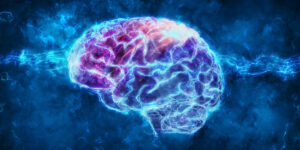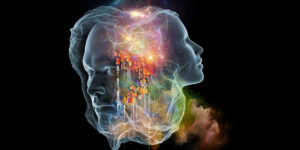The 5 differences between Neuropsychology and Neurology (explained)

Neuropsychology and Neurology are different disciplines and although both are neurosciences and focus on studying brain alterations and damage, the way of raising it, focusing and treating it will be different.
One of the main differences is that Neurology is a medical specialization, on the other hand, Neuropsychology is a branch of Psychology, giving this distinction room for different ways of evaluating the problem or treating it. Distinction will also be observed at the beginning of each one of them, Neurology having an older origin.
Thus, we will see that Neurology will focus only on anatomical aspects and prescribe pharmacological treatment. On the other hand, Neuropsychology will be interested in the relationship of brain damage with different cognitive functions, thus carrying out a treatment based on cognitive rehabilitation. In this article we will mention what we understand by Neuropsychology and Neurology, focusing on the presentation of the main differences that exist between these two disciplines.
What is Neuropsychology?
Neuropsychology is a neuroscience that is responsible for investigating the relationship between different brain structures and people's behavior, whether they are healthy subjects or individuals with some type of brain disorder. Specifically, the behavior or functions studied are those of a higher rank, which differentiate humans from other species, such as executive functions, memory or language.
The professional in charge of carrying out these investigations and studies is the neuropsychologist who is a psychologist specialized in the knowledge of the functions and structures of the central nervous system, that is, the brain and the spinal cord. Thus, its purpose will focus on evaluating and assessing the state of cognitive functions of patients in order to use techniques and programs that allow working on these functions, in order to achieve the rehabilitation of capacities.
In this way, the main areas or alterations that the neuropsychologist will attend to will be: affectations due to acquired brain damage, such as head trauma, neurodegenerative diseases such as dementias, the most common being Alzheimer's dementia, learning disabilities, neurodevelopmental disorders, such as dyslexia or attention deficit disorder or you can also dedicate yourself to the field of research.
What is Neurology?
Neurology is a type of medical specialty that has the function of studying the central nervous systemAs we already mentioned, it integrates the brain and spinal cord and the peripheral nervous system, formed by the nerves and nerve ganglia. In this way, you will gain insight into both the healthy brain and the damaged brain. Thus, the neurologist is a physician with additional specialized training in the central nervous system, peripheral nervous system and neuromuscular system.
How are Neuropsychology and Neurology different?
Therefore, after knowing how the two terms are defined, we observe that they have characteristics in common since both are a neuroscience, taking care of the study of the structures and functions of the different nervous systems, both in healthy subjects and in those with some kind of brain alteration.
But as expected, they will also show differences between them, for example, regarding the professionals who make up each discipline, the starting point and origin of each specialty, the way they focus their study or evaluate the subject and the types of treatments used.
1. Scope of which each specialty is part
As we have already pointed out, both Neuropsychology and Neurology are specialties, but the difference lies in which field they belong to. In the case of the first, as the name indicates It is a branch of Psychology, while the second is a specialty of Medicine.
2. Professionals who perform each function
As we already anticipated, in order to dedicate yourself to Neuropsychology it will be necessary to have a degree in Psychology and a master's degree, specialize in the study of brain functions and structures, in short, be a neuropsychologist. Conversely, the professional who practices Neurology is the neurologist, who must have a degree in Medicine and have completed complementary training on the central, peripheral and neuromuscular nervous system.
Given the relationship between the different functions performed by professionals in each discipline, it is essential that a joint intervention, interdisciplinary work be carried out, so that the patient can benefit as much as possible.
3. When did each specialty start?
Neurology is a medical specialty already present in historical times, although it will not be considered an academic discipline until the 16th century, in this way we see how this discipline evolves, becoming more complex and carrying out a more systematic work.
Highlight Thomas Willis, who was one of the first physicians to be interested in neuroanatomical research and discovered the Willis polygon that gives name to a circle of arteries found at the base of the brain and Jean Martin Charcot, who is considered the founder of modern neurology, discovered the relationship between the injury of specific areas of the brain and the alteration in motor skills and created the famous school of Neurology at the Hospital de Salpetrière.
On the contrary, Neuropsychology is a discipline of quite recent appearance. The first evidence of studies of this specialty dates from the mid-nineteenth century with the discovery of two of the areas that influence language, the Broca Area named after Paul Broka who was the one who located it, this area is responsible for fluency of the language, of the motor part and the Area of Wernicke that receives its name from Carl Wernicke who discovered it, this region of the brain performs the function of understanding language.
Even if It will not be until the twentieth century, the forties, when this specialty gained more strength thanks to the work of Alexander Luria, who is considered the father of current Neuropsychology, in order to create a battery of psychological tests that would allow to detect different affections of the cognitive functions such as language, memory or motor functions, that is, praxis. Thus, it is logical to think, due to the appearance of each discipline, that Neuropsychology has received influence and has had Neurology as one of its references.
4. Way of studying and evaluating the affectation
Neurology raises the study of the problem in a molecular way, this term refers to a more specific and concrete approach to the affectation at the anatomical level. Thus, given the possibility of the presence of brain damage, the neurologist will carry out an investigation of the different brain areas that may be altered, that is, they will only take into account the biological condition.
For its part, Neuropsychology will carry out a more general study, with a more molar vision, this means that it is not only with the detection of brain damage but that it will go further trying to discover the relationship between this alteration and affected cognitive or motor functions. In this way, the neuropsychologist goes a step further than the neurologist, looking for the link between anatomical alterations and the affectation of the psychological processes that these entail.
5. How is the treatment planned?
Thus, one of the main differences at a general level between Psychology and Medicine is the possibility or not of prescribing drugs to the patient. In the case of Doctors have the necessary studies to prescribe drugsThese being the basis of most of the treatments carried out, on the other hand, psychologists, despite having knowledge of the different psychotropic drugs, since they will intervene in patients who consume them, they cannot prescribe the consumption of these, focusing their intervention mainly on the psychotherapy.
In this way, as we know that the neurologist is a specialist in neurological damage, their main interventions will consist of specifically evaluating, as we have already said, the alteration to be able to treat with the most correct drug according to the problem of each patient.
While the neuropsychologist, having not studied medicine, will not be able to prescribe psychotropic drugs, focusing their intervention on a cognitive rehabilitation process using psychological techniques and strategies. It has been seen essential that before brain damage that involves loss or injury of neurons and the relationship between them (synapses) exercises are carried out to re-form connections between different neurons and thus favor the recovery of lost functions or to slow down the progression of neurodegeneration, as would be the case with intervention in patients with dementia.
Also note that the Neuropsychologist complements the intervention carried out on the patient with work with their family members and social environment, since it is essential that the people who spend more time with the patient are well informed of the situation and can collaborate in the treatment so that this be intensive and generalize.
Thus, we see that the function performed by the two disciplines, Neuropsychology and Neurology are complementary, both being just as important and necessary. Both professionals work together to ensure that the patient has an optimal recovery and can achieve the highest possible level of autonomy and quality of life. It is insufficient to only carry out one of the two treatments since if, for example, only drugs are taken but cognitive stimulation of the affected area is not done, exercising the different functions that have been damaged, the improvement that the patient can achieve will be much more deficient .












Leave a Reply